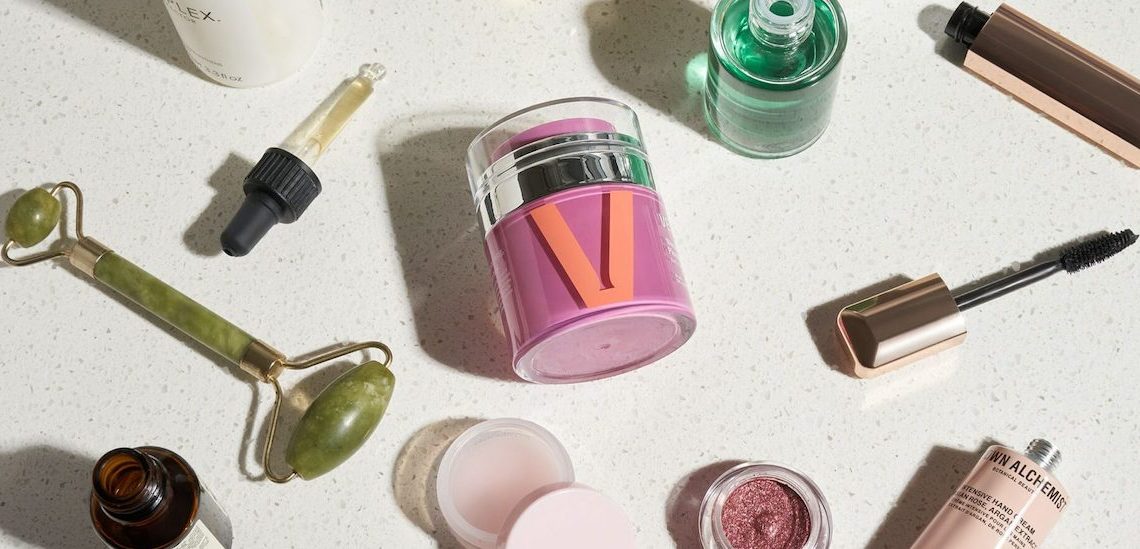Sexual wellness is extending its climax.
The sexual wellness category already had a stellar 2020, and 2021 looks to be the same. After already reaching what could be called its pinnacle during the U.S. period of Covid-19 quarantine, the wellness appeal of sex products has not faded. The category is poised for further growth fueled by the embracement of investors and retailers, as well as the launch of new brands. In August, German company WOW Tech Group combined with U.K. retailer Lovehoney to offer a range of sexual wellness products like vibrators and lubricants, with a deal value of $1.2 billion. In August, Bloomingdale’s introduced a sexual wellness shop as an online-only offering. In June, DoorDash expanded its on-demand delivery options to include sexual products from Lola and Hims & Hers, ensuring shoppers could get items as soon as possible.
According to Pitchbook data, 2019 was the biggest year, in terms of the number of U.S. VC deals in the femtech space, which includes sexual wellness consumer brands. Venture capitalists poured $558 million into 76 deals. But as of August 2021, there have been 115 U.S. VC deals in femtech, with a cumulative $812 million invested into 61 deals. Some of these deals include indie brand Cake, which received $4 million in fundraising in June and expanded into Walmart with four products. Meanwhile, fellow sexual wellness startup Maude raised an oversubscribed $5.8 million second seed round that same month. Since its launch in April 2018, Maude has raised more than $10 million in outside funding from investors like William Morris Endeavor and Fable Investments, the venture fund behind Natura & Co. Actress Dakota Johnson also joined as an investor and co-creative director in 2020.
“[Our investors] were bullish that we have taken a 360-degree approach to the [sexual wellness] category to make the space sit between personal care and beauty on the shelf,” said Éva Goicochea, Maude founder and CEO. In addition to vibrators, Maude sells candles, bath soaks and lubricants through retailers including Bloomingdale’s and Nordstrom.
Maude’s customer base is 50% people between ages 25-45 and is split nearly 50% between men and women. Goicochea said Maude expects to reach profitability in mid-2022, but she previously told Glossy it would achieve that in 2021. She said Maude is on track to double sales year-over-year in 2021, compared to 2020.
Luxury retailers joining in on sexual wellness has been one of this year’s biggest sexual wellness themes, though its roots stretch back to at least 2018. Vella Bioscience, for example, sells a 30-milliliter bottle of clitoral gel for $65 or single-use sachets for $8 through the e-commerce websites of Bergdorf Goodman, Neiman Marcus, Nordstrom and Saks Fifth Avenue. Vella Bioscience raised $7 million in seed funding and is expected to earn $25 million in sales by the end of 2022, according to WWD. Additionally, Goop launched its first vibrator in February, for $95. It promptly sold out. A similar approach unfolded for CBD, wherein luxury retailers were some of the first movers ahead of prestige and mass.
“Beauty is now a subset of wellness,” said Bulbul Hooda, CMO of Vella Bioscience, said. “Health, wellness, activewear and beauty have blurred together … And prestige retailers are recognizing that they are losing their customers, because people are no longer buying the categories [like makeup] that were thriving earlier.”
Ad position: web_incontent_pos1
But not everyone is an advocate of trying to democratize sexual wellness through a top-down retail approach.
“The notion of using luxury and a higher price point to destigmatize a category [does not make sense],” said Polly Rodriguez, co-founder and CEO of sexual wellness brand Unbound. “If you put a high enough price on it, [people] consider it luxury and thus not as taboo, but that doesn’t deal with the fundamental issue of how to destigmatize sexual health. Increasing the price and making it luxury does not actually contribute to furthering that conversation.”
Seven-year-old Unbound sells its products through Urban Outfitters, FabFitFun and Anthropologie, in addition to foreign e-commerce sites. Eighty-five percent of its sales are through its DTC e-commerce site, and 15% are through wholesale retail. What does appear to make an impact of destigmatization is a readiness for people to read and write about sexual wellness, especially Gen Zers who are only now coming into sexual wellness consumerism.
“There’s been a massive shift among millennials and Gen Zers where buying these products for themselves is under the lens of self-care,” Rodriguez said.
She said 94% of Unbound DTC e-commerce customers purchase products for themselves, which is notable, compared to a heritage e-commerce company like Adam and Eve, where only 46% of customers are buying for themselves. The Unbound repeat customer rate in 2021 has also jumped from approximately 25% pre-pandemic to 35% today. Rodriguez noted that this is a “harder number” for Unbound to improve upon, given the durability of sex toys and a general lack of need for multiple.
Ad position: web_incontent_pos2
However, almost all sexual wellness brands, like CBD brands before them, still face stringent ad restrictions, which prevent them from further sharing information and reaching customers. Rodriguez said Unbound is putting together a coalition of like-minded sex and breastfeeding brands to advocate for de-regulation on platforms like Facebook and Google by the end of the year.
Goicochea said that she has also seen editorial news sites more willing to publish sexual wellness stories, as more brands have entered the market. Maude’s 2-year-old affiliate link program drives “a tremendous amount” of revenue and traffic, though Goicochea declined to share specifics.
“[Sexual wellness] content has become more aligned with personal care and beauty. You see as much diversification of the category as there is in beauty,” she said. “People have been talking about sex in pop culture for a very long time, but there may not have been brands 10 years ago that served many audiences.”




